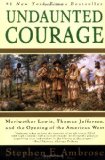Book Review: "A Thousand Acres" by Jane Smiley
June 10, 2008

1991′s fiction Pulitzer Prize-winning novel.
Minor spoiler elements: I mention briefly an event that takes place 1/4 or 1/3 of the way through the story. I do not, however, mention the main shocks/twists or the outcome.
–
Do I feel angry or lost or just blasted like the prairie farm landscape after a dry summer storm? There is a grey and tragic pall over whatever it was I just experienced in Jane Smiley’s “A Thousand Acres.” It was as inescapable as a tornado, that book, both fascinating and destructive. At first there was just a hint of a tempest brewing, a stiff breeze and a feeling of having been startled–psychological tension–but then it got windier and windier and darker and finally shocking. And now I’m looking back on the story not knowing which way is up or if it was a tornado or just the hand of a deathless literary god.
Like a scavenger I have returned to the scene of the carnage in my mind to pick apart the corpses of the story and its characters. Smiley roughly formed the plot and its undertones around Shakespeare’s King Lear (I can picture her piecing together this notion physically, like a potter at a wheel), and the frame of this hangs throughout the novel like loose clothes. Not quite hugging all of the curves, but a general fit. This is likely the best of possible circumstances: too much adherence and it would have slid beyond concept into rehash. Much less and it would have lost the plot entirely.
Our Lear is actually called Larry, an unlovable, demanding patriarch of a thousand-acre spread in Iowa. He starts as a one-dimensional curmudgeon antagonistic to change or confrontation. His three daughters, Ginny, Rose and Caroline (that is: Goneril, Regan, Cordelia in the play), orbit him in an apparent swath of appeasements and housekeeping. Our first glimpse of the Cook family is in grim snippets of submission, towing the line, servitude: a motionless destiny. Ginny and Rose’s bland-faced husbands ride the cycle of farming and related demands, squashed under Larry/Lear’s thumb.
In one drunk moment at a neighbor’s party, Larry announces his intention to divide the farm between his daughters. One brief moment of hesitation on Caroline’s part ends in a door slammed in her face and assumed, instant alienation from the rest of the brood. Readers of Shakespeare know how this goes.
For much of the book Larry’s actions seem unmotivated, sprung from his thick head fully-formed, perhaps. He seems a demanding tyrnat. But then the whole book is inside out–it’s Ginny (Goneril) who is our protagonist, who is narrating, who, in King Lear, is one of the conniving, treacherous sisters trying to grub as much possible land and power from her ailing father. Is Ginny winding her story around, dipping past events and motives she doesn’t want us to see in her father and herself? What really did prompt him to give up the farm? Is Ginny evading, lying?
Ginny does have us in her hand. Enough so that the betrayal of her marriage (portrayed by her as blank and duty-bound, mostly) seems not a sin but a liberation she is entitled to. Instead, she would argue, it’s Rose who is the insidious one, Rose who is evil and desperate and hopeless. Ginny is a pushover, sure, but we never get to know the depth of her guile. She has it hidden somewhere.
The first half of the book is intense but survivable. But the storm that unleashes both the symbolism and force of King Lear here also leads to darker days, secrets and unstoppable powers that are not escapable. There is very much a sense of no return, and it’s hard to watch without incanting “oh, no, oh, no, oh no.” We know from its outset it will be tragedy, the question is how far Smiley will take it.
Like a survivor of a storm myself now I feel ghostly and white and shaky. Shaky because the foundations of my understanding of Lear and Larry are tumbled upside-down and furious. Was Lear ever pitiable? Was there ever a suggestion in Shakespeare that he was anything but a vindictive patriarch? Or is Ginny pulling the wool over my eyes with such deftness that I missed the part when she was poisoning me? And whose truth is the real truth? This will require some thinking.
Recently Reviewed
Get the Books
Read my Reviews
Related Posts
- Book Review: “The Many Deaths of the Firefly Brothers” by Thomas Mullen
January 27, 2010 - Book Review: “Buffalo Gals and other Animal Presences” by Ursula K. Le Guin
December 30, 2009 - Book Review: “The Left Hand of Darkness” by Ursula K Le Guin
April 14, 2010 - Book Review: “Blood Harvest” by S.J. Bolton
November 8, 2010 - Book Review: Venetia Kelly’s Traveling Show by Frank Delaney
March 2, 2010





